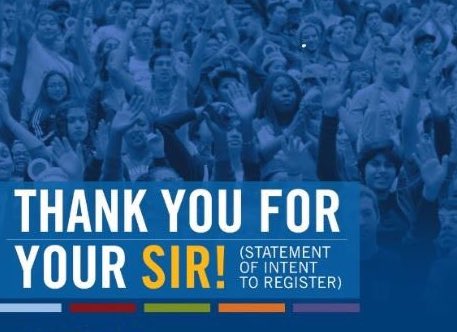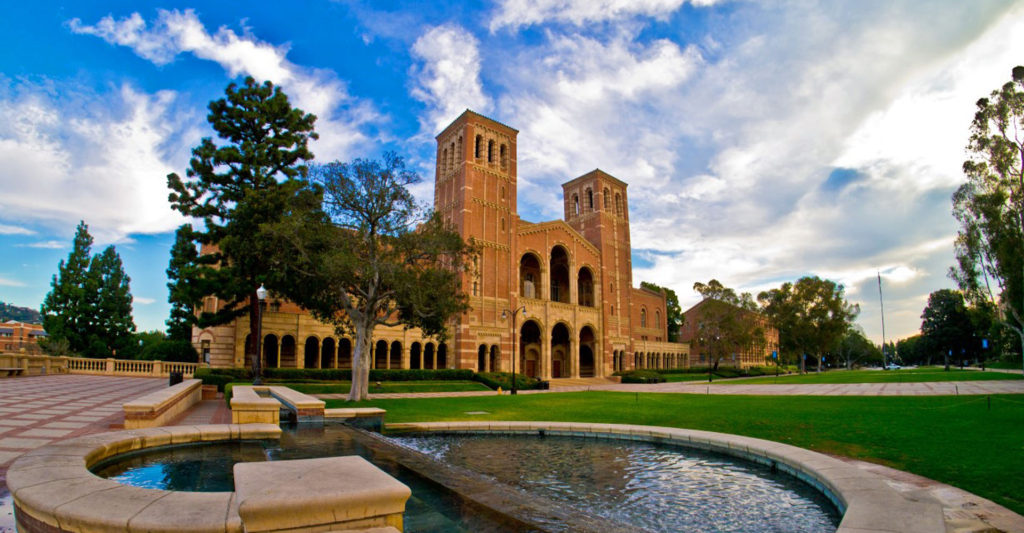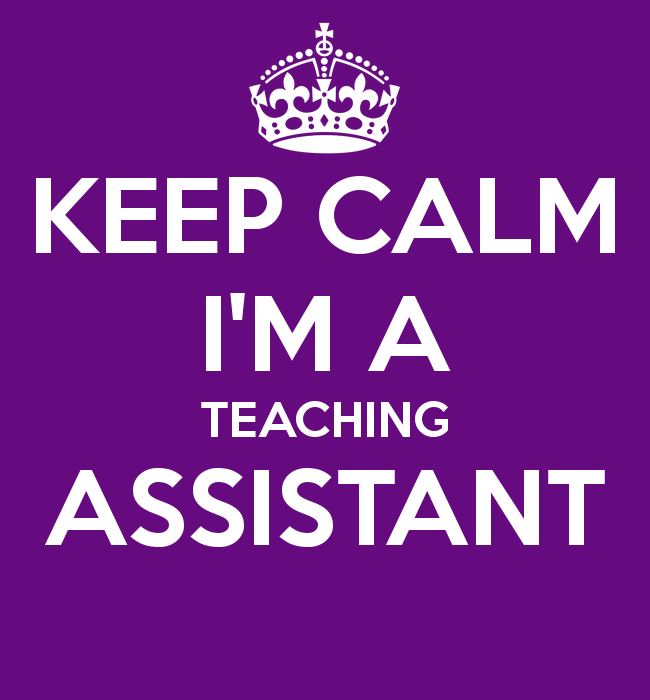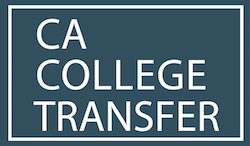20 Steps to Follow After Getting Into a UC
Congratulations on your admittance to the University of California as a transfer student!
Whether your destination is Berkeley, Davis, Irvine, UCLA, Merced, Riverside, San Diego, Santa Barbara or Santa Cruz, these next steps are crucial to a strong transition:
1. Read your Provisional Contract.
 Every student has a unique Provisional Contract. You will find it in theUC portal after you are accepted. Be sure to read it carefully. It may say things such as:
Every student has a unique Provisional Contract. You will find it in theUC portal after you are accepted. Be sure to read it carefully. It may say things such as:
— Contact admission if you get two Cs in any course, or one C in a major course; or any Ds and Fs.
— You must maintain a 3.0 cumulative GPA your last term.
— You must get a B in xxxx class (or classes).
If you withdraw from a class or switch a class — in other words, anything that has changed from your Transfer Academic Update, you must contact the UC. They do want to work with you. Waiting to the last minute to inform the UC of a change rarely has a good outcome. And heads up: Ds and Fs can get you rescinded more often than not.
2. SIR to 1 campus only (unless…).

When you commit to a UC you file a Statement of Intent to Register (SIR). You do this in your portal. The SIR fee is $250 (non-refundable). You should only SIR to one campus unless you are waitlisted. In that case, if you are admitted to another UC, SIR there in case the waitlist falls through. If you are accepted off the waitlist, you may withdraw the first SIR and SIR to the new campus. You will lose the original $250, however.
3. Consider summer courses.
 Yes, you can take UC courses during the summer before fall admission or possibly take other courses at your CA community college. Be sure to get permission first from the UC. Also, be sure to check out any bridge courses that the UC might offer. These are specifically for under-represented students to help acclimate them to a major or the UC campus.
Yes, you can take UC courses during the summer before fall admission or possibly take other courses at your CA community college. Be sure to get permission first from the UC. Also, be sure to check out any bridge courses that the UC might offer. These are specifically for under-represented students to help acclimate them to a major or the UC campus.
4. Go to transfer days and orientation.
 In late spring all the UCs have their version of a Campus Day, which is a welcome event for new or prospective students. There are also days set aside especially for transfers. If you visit a campus on its welcome day remember they are pulling out all the stops, so consider visiting another time to get the real day-to-day vibe.
In late spring all the UCs have their version of a Campus Day, which is a welcome event for new or prospective students. There are also days set aside especially for transfers. If you visit a campus on its welcome day remember they are pulling out all the stops, so consider visiting another time to get the real day-to-day vibe.
Orientation is when you go to your UC to sign up for classes. This is a crucial time to meet other transfers and get early dibs at enrolling. If you miss orientation, you can still enroll, but it will be at the culmination of the process so some classes may be unavailable.
5. If on a waitlist — write a letter!
 If you are put on a waitlist and the campus allows a waitlist letter, be sure to write one. This is where you plead your case as to why you really want to be at that superlative campus and why they really should be moving you up that list. You can understand how a campus might view one applicant who submitted a letter against another who didn’t appear to be bothered enough to write an enthusiastic plea. Waitlist info by campus for 2017.
If you are put on a waitlist and the campus allows a waitlist letter, be sure to write one. This is where you plead your case as to why you really want to be at that superlative campus and why they really should be moving you up that list. You can understand how a campus might view one applicant who submitted a letter against another who didn’t appear to be bothered enough to write an enthusiastic plea. Waitlist info by campus for 2017.
6. Get Official Transcripts submitted by deadline
 The UC you choose must receive Official Transcripts from all colleges attended, even if the transcript is just withdrawals, by the stated deadline of July 1 or you risk being rescinded. Summer transcripts are due Sept 1. (Note that UCLA wants transcripts through fall by June 1, and final spring July 1.)
The UC you choose must receive Official Transcripts from all colleges attended, even if the transcript is just withdrawals, by the stated deadline of July 1 or you risk being rescinded. Summer transcripts are due Sept 1. (Note that UCLA wants transcripts through fall by June 1, and final spring July 1.)
If your college cannot make the deadline, contact your UC via this email: AskUC@ucop.edu. Transcripts can be sent electronically or by mail. You may also hand deliver if they are in a sealed envelope provided by the educational institution.
7. If you fulfilled IGETC submit certification.
 If you chose the IGETC general ed path (one of two — the other being breadth), you must get full or partial certification. This is signed off by the last community college you attended and is a separate process from transcripts. You need to request certification online or in person at your community college. The deadline for the IGETC certification to be received by the UC is July 15.
If you chose the IGETC general ed path (one of two — the other being breadth), you must get full or partial certification. This is signed off by the last community college you attended and is a separate process from transcripts. You need to request certification online or in person at your community college. The deadline for the IGETC certification to be received by the UC is July 15.
Likewise, if you mentioned any AP exam scores in your application, you need to contact the CollegeBoard and have them sent to the UC. Deadline is July 15.
8. Financial Aid Awards.
 Your financial aid package, if you applied and qualify, will show up in the UC portal either at the time of your acceptance notifications or within the following few days. Awards may not be the same at each UC. Keep in mind, if you plan to go to summer school, some of that money may funnel to it, so be sure and talk to the financial aid department so you handle the money correctly.
Your financial aid package, if you applied and qualify, will show up in the UC portal either at the time of your acceptance notifications or within the following few days. Awards may not be the same at each UC. Keep in mind, if you plan to go to summer school, some of that money may funnel to it, so be sure and talk to the financial aid department so you handle the money correctly.
9. Join a UC Transfer Facebook page.
 After your admittance notification, one of the best ways to connect to other transfer students and get a lay of the land is to join a dedicated Facebook Page for transfers. Search terms such as, UCLA Transfers, UC Berkeley Transfer Class of 2018, and the like. One of the drawbacks of being a transfer is you’re coming in when many students have already made friends freshman year. Facebook is an excellent way to create bonds.
After your admittance notification, one of the best ways to connect to other transfer students and get a lay of the land is to join a dedicated Facebook Page for transfers. Search terms such as, UCLA Transfers, UC Berkeley Transfer Class of 2018, and the like. One of the drawbacks of being a transfer is you’re coming in when many students have already made friends freshman year. Facebook is an excellent way to create bonds.
10. Research housing options early.
 Shortly after you SIR you will gain access to the campus housing website. If you choose to live in campus housing you submit a form and there is a lottery. Campus housing is usually more expensive than nearby apartments and often not what they’re cracked up to be for older students. There is a myth that if you aren’t in campus housing you’re missing out on connections. Absolutely not true. The key is to be close to campus. Both options — campus housing and off-campus housing — provide equal benefit, so don’t dismiss one over the other. There is a FB page for rentals and roomies, usually connected to the FB Transfer Page.
Shortly after you SIR you will gain access to the campus housing website. If you choose to live in campus housing you submit a form and there is a lottery. Campus housing is usually more expensive than nearby apartments and often not what they’re cracked up to be for older students. There is a myth that if you aren’t in campus housing you’re missing out on connections. Absolutely not true. The key is to be close to campus. Both options — campus housing and off-campus housing — provide equal benefit, so don’t dismiss one over the other. There is a FB page for rentals and roomies, usually connected to the FB Transfer Page.
11. Verify your DAR.
 At some point there should be a message that the UC got your transcripts (be sure to verify because they do get lost). From there, you can view your Degree Audit Report (DAR). This will show all the classes that transferred and what IGETC/breadth sections are fulfilled and which major requirements are met. Double-check that this matches your own assessment. If something doesn’t seem right be sure to contact the UC. If you have a course from a 4-year college that you think should transfer and the DAR says it is not transferable submit an appeal. It often can get overturned.
At some point there should be a message that the UC got your transcripts (be sure to verify because they do get lost). From there, you can view your Degree Audit Report (DAR). This will show all the classes that transferred and what IGETC/breadth sections are fulfilled and which major requirements are met. Double-check that this matches your own assessment. If something doesn’t seem right be sure to contact the UC. If you have a course from a 4-year college that you think should transfer and the DAR says it is not transferable submit an appeal. It often can get overturned.
12. Switching majors.
 You may be able to switch majors after acceptance if the new major is in the same college (e.g., College of Letters and Science, College of Natural Resources, etc. ). However, if a major is selective or impacted (meaning in great demand) you likely will not be able to switch. Check to see if you can accomplish this online or reach out to your UC advisor for clarification. Be aware that in order to switch majors you must have all the pre-reqs for the new major completed by the first semester or second quarter at the UC. Read more information on switching here.
You may be able to switch majors after acceptance if the new major is in the same college (e.g., College of Letters and Science, College of Natural Resources, etc. ). However, if a major is selective or impacted (meaning in great demand) you likely will not be able to switch. Check to see if you can accomplish this online or reach out to your UC advisor for clarification. Be aware that in order to switch majors you must have all the pre-reqs for the new major completed by the first semester or second quarter at the UC. Read more information on switching here.
13. Get to know your campus.

Have you trekked to the Big C? Have you kissed a banana slug? Have you attended a pow-wow? Each UC usually has a dedicated page noting its campus traditions, such as as this one from UC Berkeley. Whether you’re a Golden Bear, an Aggie, a Bruin, Anteater, Banana Slug, or any other mascot, you can access the traditions for each UC here.
14. Sign up for safety alerts.
 After you get situated on your campus be sure to sign up for safety alerts provided by the campus police. You might also want to download the Wildfire app, which is offered at many of the UCs (having been started by some enterprising students at Berkeley).
After you get situated on your campus be sure to sign up for safety alerts provided by the campus police. You might also want to download the Wildfire app, which is offered at many of the UCs (having been started by some enterprising students at Berkeley).
15. Start slow.
 UC advisors always recommend starting slow the first term to make for an easy transition. Don’t make the mistake of assuming you’re a super power who can just plow through. That decision can negatively impact your GPA. The UCs are harder than a community college and it’s a new environment. (Someone compared Berkeley to finals week at a community college every week.) I suggest taking the minimum course load first term and piling on from there. 😀
UC advisors always recommend starting slow the first term to make for an easy transition. Don’t make the mistake of assuming you’re a super power who can just plow through. That decision can negatively impact your GPA. The UCs are harder than a community college and it’s a new environment. (Someone compared Berkeley to finals week at a community college every week.) I suggest taking the minimum course load first term and piling on from there. 😀
16. Join clubs or go greek.
 I cannot stress enough that in order to maintain emotional equilibrium you need to find a support group of peers. A good way, right out the gate, is join clubs. There’s always a Club Week on campus, where you can browse with no commitment and get a lot of free food in the process. Also, if you’re Greek-oriented, consider a sorority or fraternity.
I cannot stress enough that in order to maintain emotional equilibrium you need to find a support group of peers. A good way, right out the gate, is join clubs. There’s always a Club Week on campus, where you can browse with no commitment and get a lot of free food in the process. Also, if you’re Greek-oriented, consider a sorority or fraternity.
17. Go to office hours.
 Go to office hours and meet your professor! If you have nothing to ask, simply introduce yourself and say you’re looking forward to the class. Short and sweet.
Go to office hours and meet your professor! If you have nothing to ask, simply introduce yourself and say you’re looking forward to the class. Short and sweet.
I remember telling my daughter, who was struggling in a class, to go to her prof’s office hour at Berkeley. So she went with an essay question and told him how much she enjoyed the class (which she did), and he was like, Yeah, whatever… (OK, it might not always work!) But he did grade the essays and she did get an A-, so who knows?
All joking aside, not only does the prof get to know you, it shows you’re committed and you can get a lot of direct help with tests and papers.
18. Get to know your GSI or TA.
 One of your BFFs in each college course is your TA (Teaching Assistant) or GSI (Grad Student Instructor) as they call them at Berkeley. They wield a huge amount of power as they read your essays and grade them. Be sure to be friendly, get to know them, and ask for assistance, if needed. While a few can be difficult (power is a heavy crown, baby!), the vast majority are there to help you get through the course with a good grade.
One of your BFFs in each college course is your TA (Teaching Assistant) or GSI (Grad Student Instructor) as they call them at Berkeley. They wield a huge amount of power as they read your essays and grade them. Be sure to be friendly, get to know them, and ask for assistance, if needed. While a few can be difficult (power is a heavy crown, baby!), the vast majority are there to help you get through the course with a good grade.
19. Take a DeCal!
 If you are at Berkeley, be sure to find time to add in a DeCal. These are courses taught by students and are usually one unit. DeCal is short for Democratic Cal and was started during the Free Speech movement in the ’60s. Recent offerings include: Underwood 2016: House of Cards; Video Game Music; Music and Lyrics of Radiohead; and UC Hogwarts: The Wizarding World of Harry Potter.
If you are at Berkeley, be sure to find time to add in a DeCal. These are courses taught by students and are usually one unit. DeCal is short for Democratic Cal and was started during the Free Speech movement in the ’60s. Recent offerings include: Underwood 2016: House of Cards; Video Game Music; Music and Lyrics of Radiohead; and UC Hogwarts: The Wizarding World of Harry Potter.
20. Network for career opportunities.
 Keep in mind that you will likely obtain your bachelor’s degree in two years. Even before then you should start networking for jobs and internships. It’s a dog eat dog world out there, folks. Explore job fairs and career events on campus, go to your UC’s career center and search their listings online. Also, consider outside sources such as LinkedIn Student Careers. Which reminds me — if you don’t have a LinkedIn profile yet, get one pronto. And keep it active. Opportunities can be found there and recruiters use it extensively.
Keep in mind that you will likely obtain your bachelor’s degree in two years. Even before then you should start networking for jobs and internships. It’s a dog eat dog world out there, folks. Explore job fairs and career events on campus, go to your UC’s career center and search their listings online. Also, consider outside sources such as LinkedIn Student Careers. Which reminds me — if you don’t have a LinkedIn profile yet, get one pronto. And keep it active. Opportunities can be found there and recruiters use it extensively.



Comments (0)